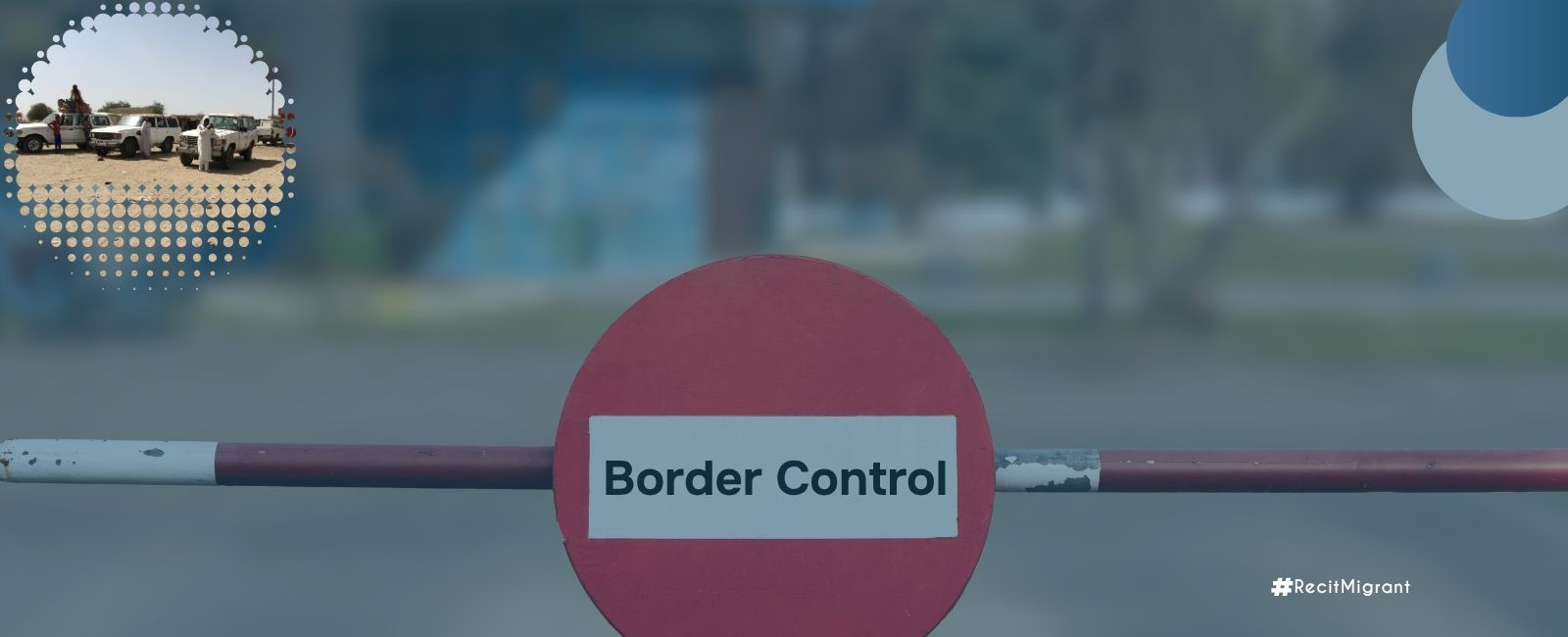

Even the most determined traveller can be discouraged from travelling in parts of Africa due to challenging conditions such as corruption, forced returns, constant checks and mistreatment. Cryspin Laoundiki experienced this first-hand on a gruelling 4,000 km road trip from Chad to Burkina Faso via Niger, Benin and Togo. It was an exhausting and eye-opening adventure. Read his story.
Journalist Cryspin Laoundiki travelled from N’Djamena to Ouagadougou over the course of five days, covering nearly 4,000 kilometres. It was a long and arduous journey involving sand dunes, oppressive heat, dust and rain, and often night travel. He began the journey in a Toyota pick-up truck with about a dozen other passengers, heading as far as Daboua, the border post between Chad and Niger. From there, checkpoints began appearing in quick succession comprising the National Security Agency (ANS), the police and immigration services. Each Chadian traveller pays 1,000 CFA francs at each checkpoint. Foreigners are charged 2,000 CFA francs – provided their documents are in order. If not, the amounts skyrocket. No receipts are issued and no records are kept; this is simply the price of continuing on the road.
The stretch from N’Djamena to Daboua mostly runs through desert terrain. Travellers may pass the carcasses of animals that have succumbed to thirst or extreme heat in this arid landscape, where only a few thorny plants survive. Despite the harsh conditions, however, the scenery at sunrise and sunset is breathtaking.
Further along, new checkpoints appear, this time manned by heavily armed soldiers. The border region is unstable and is frequently targeted by Boko Haram. When I travelled this route in 2019, the roadside was littered with the charred remains of lorries – grim reminders of the bloody clashes between the army and jihadist fighters.
The road then continues towards Niamey, the capital of Niger and the second largest city on the route after N’Djamena. Yet another checkpoint awaits travellers here. Here, passengers must present a valid passport and a vaccination certificate – no exceptions. Without these, they are immediately turned back. Even when documents are in order, travellers must pay: 12,000 CFA francs for the first entry and 5,000 CFA francs for each subsequent entry. This fee, known as a ‘stamp duty’, is applied systematically.
From N’Guigmi, Cryspin travels to Diffa, a town situated around 1,300 kilometres from Niamey and 600 kilometres from N’Djamena. He then travels through Niamey, Dosso and Gaya. As the border between Niger and Benin is still officially closed, he must cross the river in a motorised canoe. Each passenger pays the boatman 1,500 CFA francs, a fee also charged by the river police. Both Beninese nationals and foreign travellers are subjected to the same treatment. The cost of transporting luggage varies depending on its weight.
After crossing the river, passengers arrive in Malanville, which is on Beninese territory. To reach the main transport station, they must travel a further three kilometres by motorbike taxi. However, midway through the journey, they are stopped at another police checkpoint. While Beninese citizens can pass freely, foreigners must pay 2,000 CFA francs each.
The journey from Malanville continues towards Ouaké, which is located near the Benin-Togo border. Once again, it is impossible to make progress without paying. While crossing the Beninese border is relatively straightforward, the situation changes on the Togolese side. Togolese nationals are charged 1,000 CFA francs, while foreigners must pay 2,000. Border agents justify these payments with a stock response: “Nobody should lecture us.” This is a clear admission that the system is rooted in extortion.
After travelling through Togo overnight, the traveller arrived in Cinkansé, the border town between Togo and Burkina Faso, early the next morning. Unfortunately, the ordeal did not end there. Once again, fees were imposed: 1,000 CFA francs for Togolese nationals and 2,000 for non-nationals – and this was before they had even entered Burkina Faso. The same practices continued on the Burkinabè side, with additional payments demanded at gendarmerie and police checkpoints along the way.
How much longer will travellers have to endure this obstacle-ridden journey characterised by under-the-table payments? For now, the question remains unanswered.
Recently Published
Subscribe to our newsletter!
Quick Links


